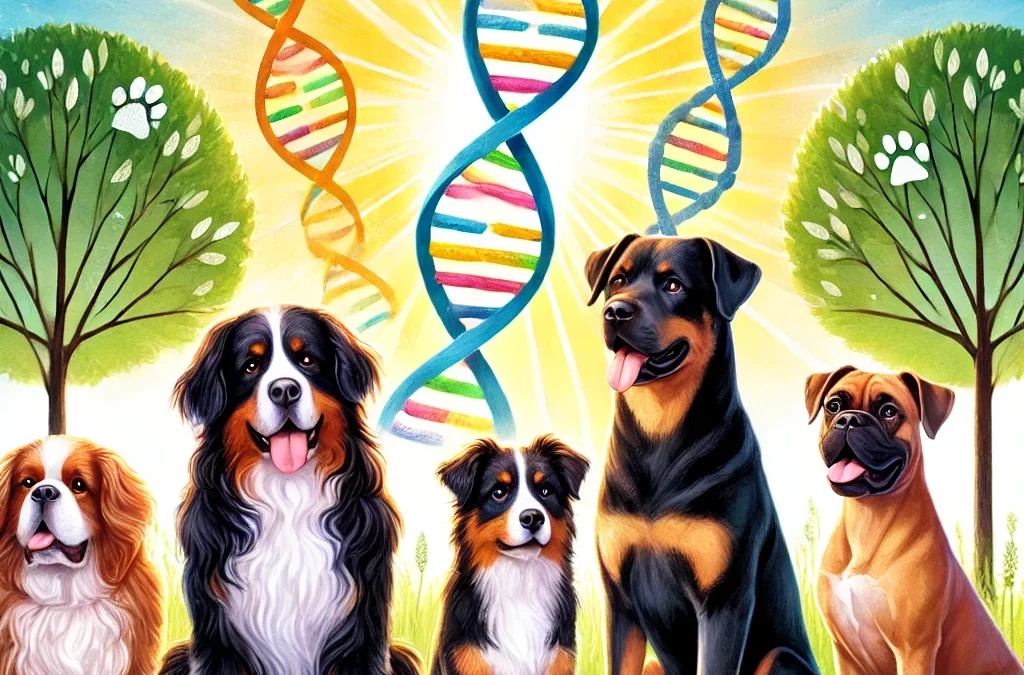When considering adding a furry companion to your family, health should be a key factor in your decision-making process. While all dogs are susceptible to certain health conditions, some breeds are genetically predisposed to developing cancer. Understanding these risks can empower you to make informed choices and proactively manage your pet’s health.
Why Are Some Breeds More Prone to Cancer?
Cancer in dogs, much like in humans, is influenced by genetics, environmental factors, and age. Breeds that have been selectively bred for specific traits often inherit genetic vulnerabilities, including a predisposition to cancer. For many breeds, this unfortunate legacy is a result of centuries of inbreeding aimed at maintaining desirable characteristics.
Breeds at Higher Risk of Cancer
1. Golden Retriever
Golden Retrievers are beloved for their friendly nature and intelligence, but they also carry a high risk of cancer, particularly lymphoma En hemangiosarcoom. Studies suggest that nearly 60% of Goldens will develop cancer during their lifetime. This staggering statistic has driven research initiatives like the Golden Retriever Lifetime Study, aimed at uncovering the reasons behind their susceptibility.
2. Bernese Mountain Dog
Known for their gentle temperament and striking tricolor coat, Bernese Mountain Dogs face a higher-than-average risk of histiocytic sarcoma, a rare but aggressive form of cancer. Their relatively short lifespan (6-8 years) is often linked to this disease.
3. Boxer
Boxers, with their playful energy and loyalty, are prone to a variety of cancers, including mestceltumoren En lymphoma. Their predisposition may be tied to specific genetic mutations, making regular vet check-ups essential.
4. Rottweiler
Rottweilers, despite their reputation as strong, robust dogs, are vulnerable to osteosarcoma, a type of bone cancer. This risk is particularly high in larger Rottweilers, underscoring the importance of monitoring their weight and joint health.
5. Scottish Terrier
Scottish Terriers, affectionately known as Scotties, are disproportionately affected by transitional cell carcinoma (TCC), a type of bladder cancer. This breed-specific risk highlights the importance of observing urinary health in these small yet sturdy dogs.
Breaking the Stereotypes: Small Breeds Are Not Exempt
While cancer is often associated with large breeds, small breeds are not immune. For example, Boston terriërs En Teckels are prone to mast cell tumors and melanoma, respectively. The size of the dog does not always correlate with cancer risk, making vigilance crucial for all pet owners.
How to Reduce the Risk of Cancer in Dogs
While you cannot change a dog’s genetic makeup, you can take proactive steps to minimize risk:
- Voeding: Feed your dog a balanced diet with antioxidant-rich foods. Supplements like omega-3 fatty acids may also support cellular health.
- Regelmatige lichaamsbeweging: Keep your dog active to maintain a healthy weight, reducing strain on their immune system.
- Avoid Toxins: Minimize exposure to pesticides, tobacco smoke, and other carcinogens.
- Routine Check-ups: Schedule annual veterinary visits for early detection of abnormalities.
- Spay/Neuter: For certain breeds, this can lower the risk of reproductive cancers.
Innovative Research: A Ray of Hope
Recent advancements in veterinary medicine are offering hope for breeds predisposed to cancer. Immunotherapy, targeted therapies, and genetic testing are becoming more accessible, enabling early detection and tailored treatments. For example, the Canine Cancer Genome Project is mapping genetic predispositions in popular breeds, paving the way for breed-specific preventive measures.
Choosing a Breed: A Heartfelt Decision
Deciding which breed to welcome into your home involves balancing practical considerations with emotional connections. If you’re drawn to a breed with a high cancer risk, ensure you’re prepared for potential medical expenses and the emotional commitment of managing a chronic condition. Many dog lovers would agree: the joy these breeds bring often outweighs the challenges of their health risks.
Conclusie
While certain breeds are more prone to cancer, awareness and proactive care can significantly improve their quality of life. By understanding their unique vulnerabilities, you can provide the love and care they deserve, turning what could be a heartbreaking challenge into a journey of compassion and resilience.


